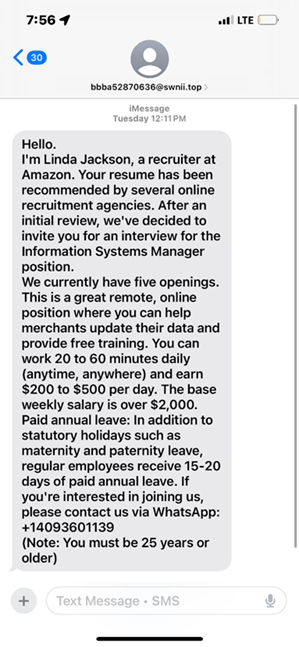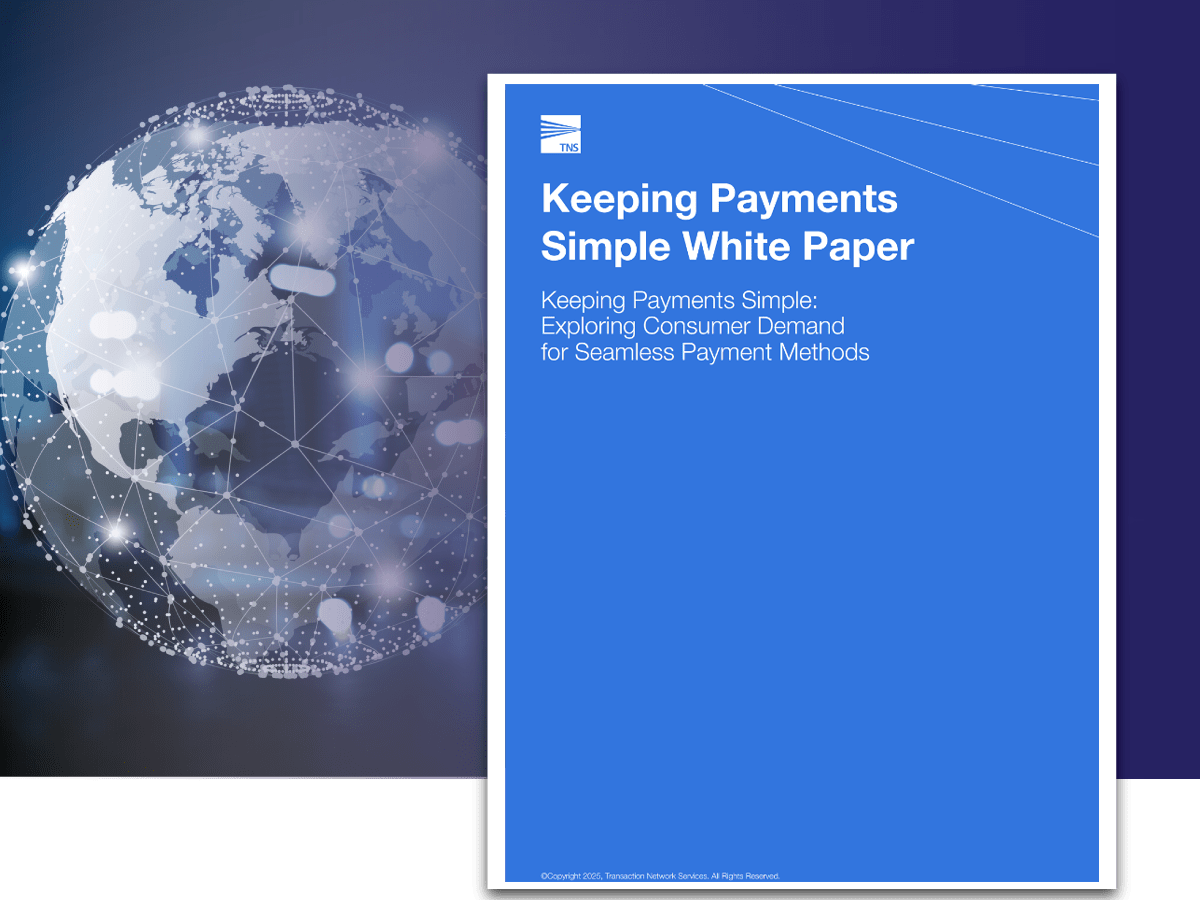There has been a surge in scams offering fake job opportunities in recent months, according to the TNS Robocall Protection team. With the current US unemployment rate at 4.2%, scammers pushing fake job opportunities have a large target audience of around 7 million people. For those who are actively searching for work, phone calls with the promise of employment, albeit a fake job offer, may be too good to turn down.
How to Know if a Job is a Scam
Robocalls offering fake job opportunities can be deceptive and difficult to spot at first, however there are a few ways to determine if a call you receive is about a fake job offer or not.
Robocalls for fake job opportunities may leave you a message like this real-life example:
“Hello, I am calling for Alyssa Merrick. We have an available job for you. Press 1 to hear more about this job to prevent further calls today, press 2.”

Red Flags for Fake Job Opportunities
If you receive any communication like this, here are a few red flags that indicate they are part of a scam pushing fake job opportunities:
- Unsolicited communication: If the robocall, text or email is referring to a job that you have not applied to, it could be that the ‘recruiter’ is advertising fake job opportunities and reaching out to you as a target for their fake job offer scam
- Too good to be true pay: A key indicator of fake job opportunities is unproportionate pay for the amount of work advertised. For example, jobs claiming you could earn $200-500 daily for only 20-60 minutes of work are likely to be fake jobs
- WhatsApp message requests: Text messages for fake job opportunities often ask for potential candidates to get in touch via WhatsApp, rather than a legitimate company HR email or phone number. This should raise suspicions as WhatsApp allows people to communicate with you from anywhere in the world, meaning that the fake job offers could be coming from anywhere in the world.
Responded to a Fake Job Opportunities Scam
If you think that the call, text or email that you have received is about a fake job offer, there are ways to check out its validity:
- Contact the company: If you are unsure if a job offer is legitimate, contact the HR department of the company that the communication claims to be from. They may not know that scammers are posing as recruiters for the company with fake job opportunities.
- Research the company: Not being able to find contact details for a company is a big red flag that the job may be part of a fake job opportunities scam, but you may find their name via a Google search on websites such as Glassdoor or on forums
Signs of Fake Job Opportunities
You may have received communication like those listed above without realizing it was a fake job offer and responded to the scammer. Further communication with the scammers may seem a little off, here are more signs that the people that you are in contact with are conducting a fake job opportunities scam:
- Equipment purchases: If you are being asked to purchase your own equipment for the job or to pay for training, this is likely a fake job offer.
- Receiving blank checks: People who have responded to fake job offers have reported being sent blank checks to fill out and send back to their new “employer”. This is another sign of a fake job offer scam as the check can then be used for check “baking” or “cooking” – a new way for fraudsters to steal from bank accounts. This tactic allows the fake job offer scammers to digitally edit blank checks and resubmit them repeatedly through online check deposit services.
Legitimate employers should not ask you to purchase your own equipment, pay for training, nor will they send a blank check for you to complete. If you have applied for a job and any of the above have been asked of you, the job you’ve applied for is likely part of a fake job opportunities scam.
However, legitimate employers do need to ask for personal information, such as your Social Security Number and bank details for their payroll and the fake job opportunities scam leans into this.
Reporting a Fake Job Opportunities Scam
If you believe that you have been a victim of a fake job opportunities scam, you should immediately contact your bank and report the incident to the FTC.
It is always best practice to never engage with unknown numbers and report phone numbers being used by scammers to your carrier. If you believe you are the victim of a scam, you can report it to your local police, state Attorney General’s office and the FTC.
Call-blocking apps, including those powered by TNS Call Guardian®, are also a great resource for reporting and blocking unwanted robocalls. Stay vigilant, share information about scams with others and be sure to check out our monthly Scam of the Month page updates.
John Haraburda is Product Lead for TNS Call Guardian® with specific responsibilities for TNS’ Communication Market solutions.
Call Guardian is a registered trademark of Transaction Network Services, Inc.

Scam of the Month
Stay vigilant, share information about scams with others and check out our Scam of the Month page updates.





